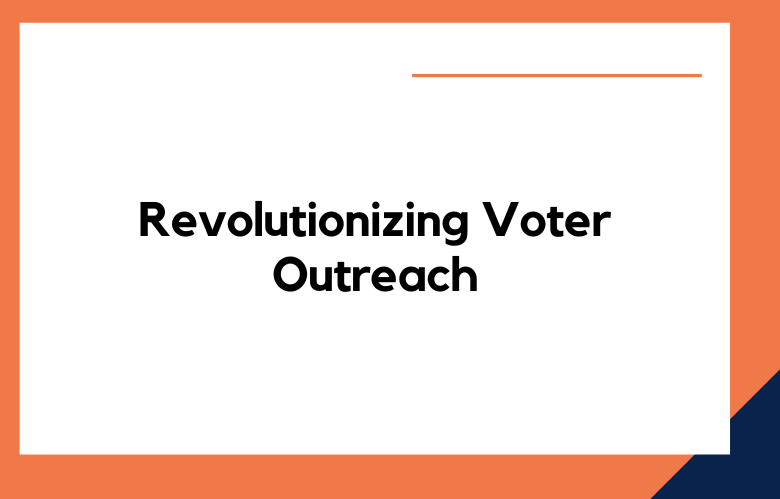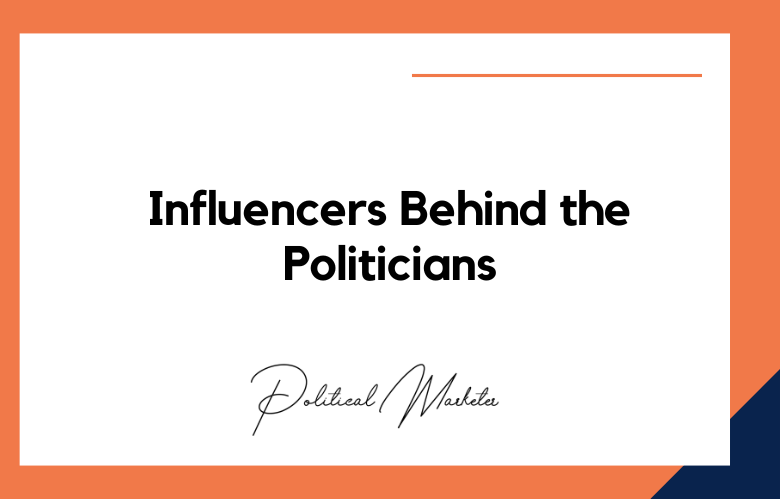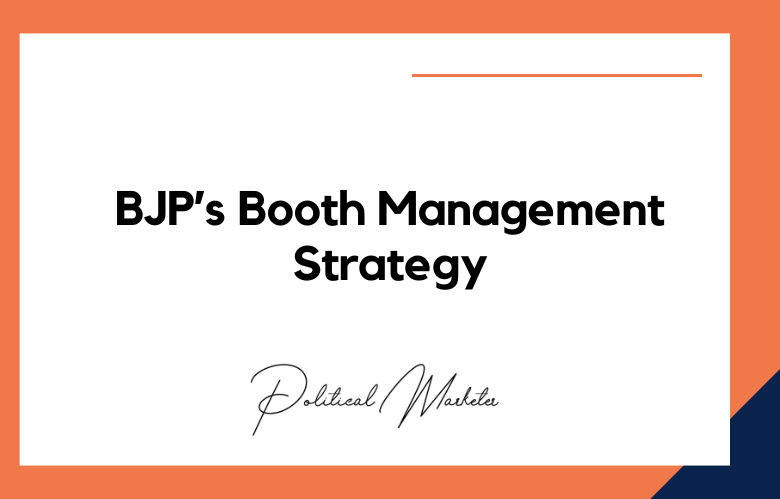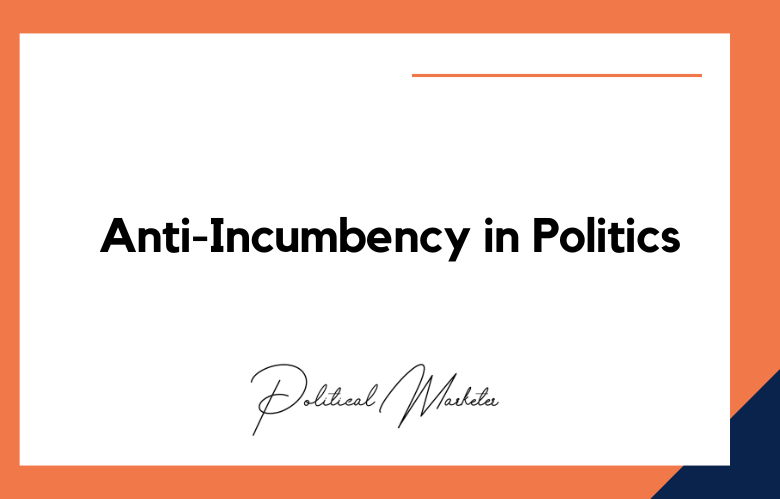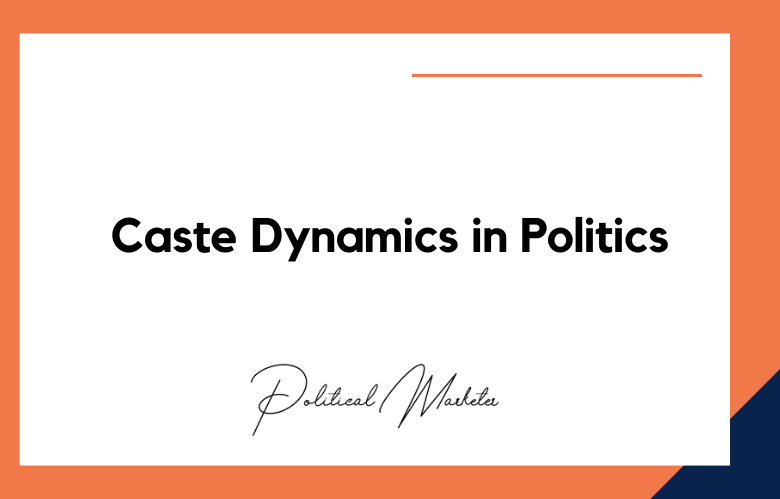The advent of artificial intelligence (AI) has transformed many areas of human life, and two of these areas are voter outreach and political campaigns. AI is changing political campaigns by allowing managers to micro-target specific audiences with tailored messages and content.
This technology offers a new level of sophistication in voter outreach, streamlining campaign processes, increasing efficiency, and, ultimately, helping politicians get elected.
We will explore how AI is revolutionizing voter outreach through microtargeting and how this impacts the political landscape.
The Rise of AI: Transforming Voter Outreach through Microtargeting
Artificial intelligence (AI) has been transforming how we live, work, and communicate for years. One of the areas where this technology has had a profound impact is in the field of politics, particularly when it comes to voter outreach.
Microtargeting identifies and markets to specific groups of voters by leveraging data on their personal preferences and behavior. With the help of AI-powered tools, it is possible to create more tailored and efficient strategies for reaching out to voters and influencing their voting decisions.
AI in voter outreach has become increasingly popular in recent years as political strategists and campaign managers seek more efficient and effective ways of reaching voters.
Microtargeting involves collecting data on individual voters, such as their voting history, social media activity, and other demographic information.
This data is then analyzed using machine learning algorithms to create detailed profiles of individual voters, which can be used to determine the most effective messaging and outreach strategies.
AI-Powered Voter Outreach: A Game Changer in Politics
AI-powered voter outreach has revolutionized the political landscape in recent years and is fast becoming a game changer in politics.
With technology enabling data analytics to target specific groups of voters, political campaigns are now being conducted on a more targeted and data-driven level.
This leads to more efficient voter outreach and a higher conversion rate, as political campaigns can now craft messaging that resonates with voter segments rather than using a “one-size-fits-all” approach.
AI-powered voter outreach is particularly effective in identifying voters who are undecided or swing voters. By analyzing data on the political affiliations, voting history, and issue preferences of individuals, political campaigns can tailor their messaging to resonate with their target audience.
AI-powered outreach can identify areas where the candidate’s message is not resonating and adjust the messaging accordingly.
Harnessing AI’s Potential: The Future of Voter Outreach
As we approach future elections, we must recognize the potential of artificial intelligence (AI) in voter outreach.
In a world where social media dominates communication channels, campaigns must find new ways to reach potential voters efficiently. By leveraging AI technology to analyze data and automate outreach efforts, campaigns can more effectively target specific demographics.
One example of harnessing AI’s potential in voter outreach is through natural language processing (NLP) algorithms.
These algorithms can analyze social media conversations and determine the most frequently used keywords and phrases related to a candidate or issue. Campaigns can then use this information to craft messages that are more likely to resonate with potential voters.
Revolutionizing Democracy: AI’s Impact on Voter Outreach
With the advent of artificial intelligence (AI), the political landscape is bound to experience significant changes in years to come. AI technology has revolutionized democracy by enhancing voter outreach, engagement, and participation.
In today’s world, social media has become an integral tool for political campaigns, and AI plays a significant role in utilizing this tool to mobilize voters.
AI in voter outreach ensures that campaigns are run effectively and that candidates’ messages reach the right audience.
This technology enables political parties to target voters more accurately based on their interests, age, location, and other relevant factors. AI-powered campaign techniques allow supporters to receive personalized messages, which increase their engagement with the campaigns.
Microtargeting Magic: How AI is Changing Voter Engagement
As society continues to move further into the era of big data and artificial intelligence (AI), the impact on voter engagement and election outcomes cannot be ignored.
Microtargeting, a marketing technique that involves gathering data on individuals and using it to tailor ads and messages specifically to them, has become increasingly prevalent in political campaigns.
In particular, AI algorithms can analyze large amounts of data, such as social media activity and online behavior, to identify patterns and preferences of individuals. This data can then be used to create highly targeted messaging that seeks to influence voters in a particular way.
The potential advantages of microtargeting are numerous. Politicians can reach specific voter segments with tailored messaging that addresses their issues and concerns. This can increase engagement among voters who may feel disconnected from the electoral process.
From Mass Marketing to Personalization: AI’s Role in Voter Outreach
In today’s rapidly evolving digital landscape, voter outreach is no longer limited to traditional mass marketing methods. Instead, advances in artificial intelligence (AI) have paved the way for more personalized approaches to communication, resulting in higher engagement and more effective campaigning.
AI-powered models are designed to sift through vast data and identify individual voter preferences.
With this information, campaigns can tailor their messaging and outreach efforts to resonate with each voter on a personal level. This can include targeting individuals based on demographics, political ideologies, or social media preferences.
Through sentiment analysis, AI algorithms can also measure public perception and help campaigns gauge the effectiveness of their messaging. This invaluable data can then refine and improve future outreach strategies.
Empowering the Electorate: AI’s Influence on Voter Engagement
The influence of AI on voter engagement has been a topic of great interest and discussion in recent times. With the rise of advanced technologies and the increasing use of social media in politics, AI has the potential to play a vital role in empowering the electorate and enhancing their participation in the electoral process.
One of the most noticeable impacts of AI in voter engagement is its ability to personalize and customize political messages, thus reaching a broader and more diverse audience.
AI algorithms are designed to analyze voter behavior, preferences, and interests and craft messages that resonate with individuals on a personal level. This enables political campaigns to engage voters more specifically and meaningfully, leading to higher engagement and participation in elections.
The AI Advantage: Unlocking New Horizons in Voter Outreach
As the world continues to evolve into the digital age, political campaigns must keep up with the changing times. In recent years, Artificial Intelligence (AI) has emerged as a powerful tool for political campaigns, unlocking new horizons in voter outreach.
AI can help campaigns to understand their target audience better, making it easier to tailor messaging and communications to specific groups.
Machine learning algorithms can analyze vast amounts of data from various sources, giving campaigns a better sense of what issues matter most to voters and how they will likely respond to different appeals.
One of the most promising applications of AI in political campaigns is using chatbots.
Chatbots can be programmed to engage voters over messaging platforms like Facebook Messenger, providing a more personalized and interactive experience. They can answer questions, provide information, and even offer polling place information and reminders.
AI on the Campaign Trail: Redefining Voter Engagement Strategies
Artificial Intelligence (AI) has been making headlines for several years and is now revolutionizing how political campaigns are run.
With the increasing volume of data generated by social media, polling, and voter demographics, AI has become a valuable tool for campaigns to gain insights into the preferences and attitudes of individual voters.
By analyzing big data sets, AI models can predict which voters will likely support a candidate, what issues are most important, and what specific messages resonate with them.
Candidates and political parties use AI to develop targeted outreach and messaging strategies to reach voters more effectively. For example, political messaging can now be customized to resonate with different segments of the electorate, such as young professionals or rural voters.
Conclusion:
The use of AI in voter outreach and political campaigns is changing the political landscape in ways that were not possible before.
With microtargeting, campaigns can reach specific demographic segments with targeted messaging that resonates with their interests, habits, and preferences.
This level of sophistication in voter outreach is unprecedented and offers a new level of engagement between politicians and the electorate. As the use of AI continues to grow in political campaigns, we can expect to see more tailored messaging, more targeted campaigns, and, ultimately, more engaged voters.
Call: +91 9848321284
Email: [email protected]
How AI is Revolutionizing Voter Outreach Through Microtargeting: FAQs
What Is Microtargeting In Political Campaigns?
Microtargeting is a strategy that uses data analytics to deliver personalized political messages to specific voter segments based on demographics, behaviors, and interests.
How Does AI Enhance Microtargeting For Voter Outreach?
AI automates data analysis and pattern recognition, enabling campaigns to identify, group, and communicate with voters more effectively and efficiently than traditional methods.
Why Is AI-Based Microtargeting More Effective Than Traditional Targeting?
AI can process vast amounts of real-time data, uncover nuanced voter behaviors, and generate tailored content that resonates with individual preferences and needs.
What Types Of Data Are Used For AI Microtargeting?
To inform AI models, campaigns use voter rolls, social media activity, consumer behavior, geographic location, browsing habits, and public sentiment data.
Can AI Predict Voter Behavior Accurately?
Yes. AI models can analyze historical data and current trends to accurately predict voter turnout, issue preference, and candidate support.
Is Microtargeting Ethical In Political Campaigns?
While it enhances relevance and engagement, ethical concerns arise around privacy, transparency, and potential manipulation of voter behavior.
How Does Microtargeting Impact Political Ad Spend?
Microtargeting increases ROI and reduces wasted ad impressions by narrowing the target audience to high-probability voters.
Can Microtargeting Help Reach Undecided Voters?
Yes. AI can identify undecided voters based on online behavior and create persuasive, issue-focused messages tailored to influence their decision.
What Channels Are Used For AI-driven microtargeting?
Digital channels like social media, programmatic ads, email, SMS, and even OTT platforms are used to deliver hyper-personalized messages.
How Can Campaigns Measure The Success Of Microtargeting?
Key performance indicators include engagement rates, conversion metrics, voter registration upticks, and alignment with polling data.
Do All Political Parties Use AI For Microtargeting?
Most major political parties globally are adopting AI tools to gain a competitive advantage and optimize their outreach strategies.
Is Microtargeting Only Useful For National Campaigns?
No. Local and regional campaigns can also benefit significantly by targeting specific communities with relevant, personalized messaging.
How Do AI Algorithms Decide Which Voters To Target?
They analyze factors like voting history, issue interest, social behavior, and media consumption to prioritize audiences for outreach.
Can Microtargeting Backfire If Not Done Carefully?
Yes. Over-targeting or perceived invasion of privacy can lead to voter distrust, backlash, or decreased campaign credibility.
Are There Tools That Politicians Use Specifically For AI Microtargeting?
Yes. Platforms like NationBuilder, HaystaqDNA, PredictWise, and custom-built data engines are widely used in modern campaigns.
Can AI Microtargeting Increase Voter Turnout?
Targeted reminders and persuasive content delivered at the right time can motivate disengaged voters to participate in elections.
How Does AI Personalize Political Messaging?
AI adapts tone, format, imagery, and message framing to align with the recipient’s values, lifestyle, and communication preferences.
Is Consent Required For Collecting Data Used In Microtargeting?
Data privacy laws like GDPR or CCPA may require consent for specific data collection and usage types depending on the region.
What Are The Future Trends In AI-Based Voter Microtargeting?
Trends include real-time sentiment analysis, predictive modeling, cross-channel synchronization, and deeper behavioral profiling.
Can AI Be Used To A/B Test Microtargeted Messages?
Absolutely. AI automates A/B testing across variations of ads, emails, or messages to find the most effective version for each audience segment.

